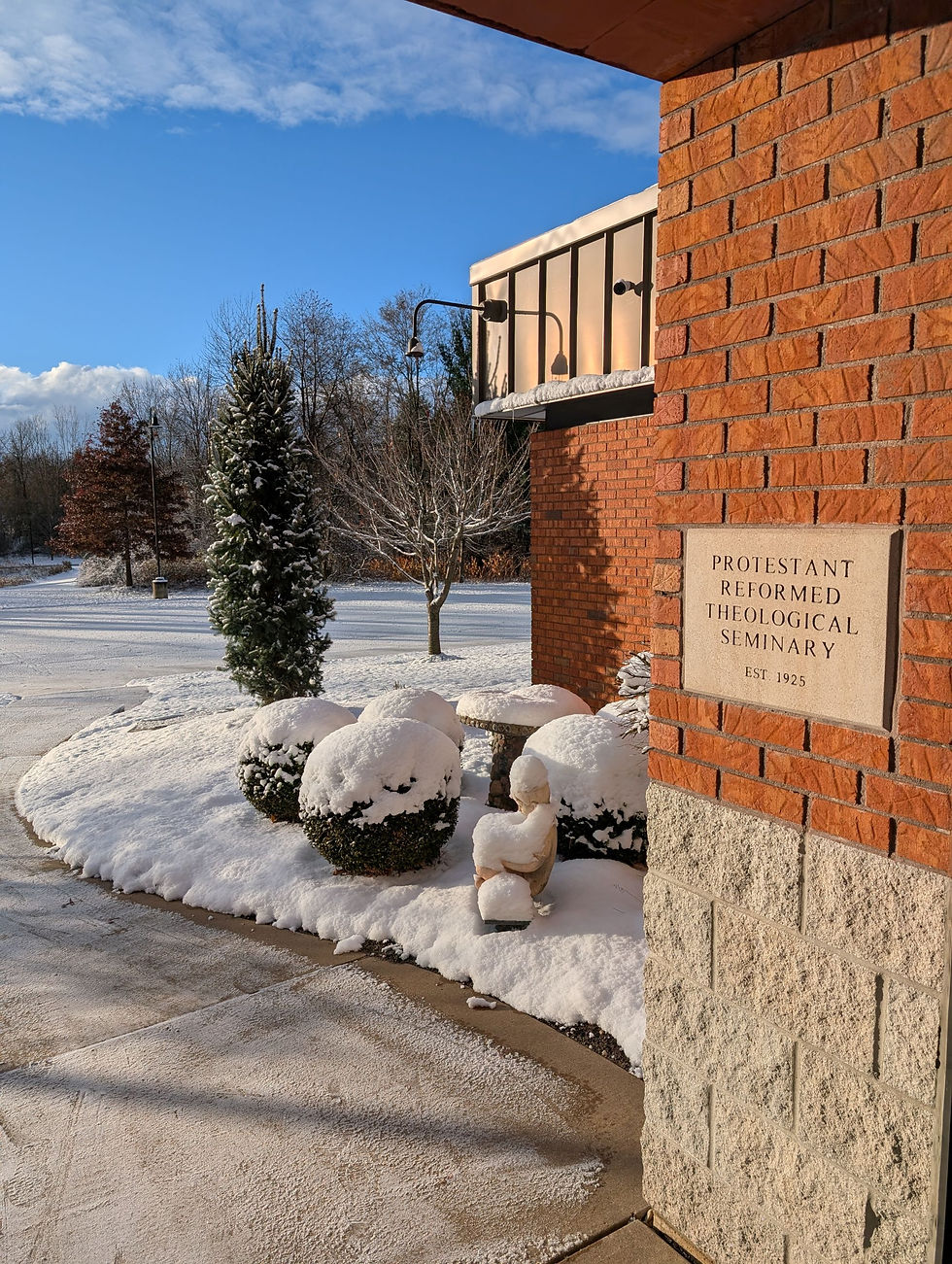A Reformed Critique of Transformational Theology and Practice
- prcseminary1925
- Feb 14, 2020
- 3 min read
In the last issue of the PR Theological Journal, Rev. C. Griess submits his "Report from the Desert," the text of a speech he gave last summer in Mexico in which he presented a Reformed critique of Neo-Calvinism's transformational theology and practice. Not only is such teaching dominating in the North American scene, but it is also gaining a following in South America, including Mexico.
After describing this "new" reformational theology and practice, Rev. Griess gave it a solid Reformed evaluation, following Scripture and the Reformed confessions. Part of that evaluation included these words:
The gravitational pull of the more exciting prospect of transforming this culture into the millennium or the new heavens and new earth has taken the church’s focus away from working to maintain the marks of the true church (explained in Belgic Confession, Articles 28 and 29). In some circles the prevailing thought is that Christians may in large part ignore the church for the more important matters of cultural transformation. It has drawn God’s people away from the high callings given them in Scripture, (E.g. being a wife and mother). It has drawn the church away from putting her energy into reforming the lives of the families within her midst according to the Word of God (which is the foundation of the church and society, and which is a major focus of the Word of God), to allowing the church to mirror the culture in the family’s destruction, all the while calling people to transform the culture. Indeed, the traditional Reformed and biblical emphasis on the antithesis has fallen away. The church becomes more and more like the world, transformed by the world, all the while proclaiming that her goal is to influence the world.
The emphasis on thorough catechizing of the youth in the theology of the Reformed and biblical faith has fallen away, only to be replaced by a watered-down, felt-need religion, and emphasis on being in the culture. The effect upon the youth has been devastating.
It has distracted the church from caring about souls and their eternal state, to caring instead about what “impact” is being made on the culture.
All this, though there is no reformational agenda in the entire book of Acts, which is our model for the spread of the gospel. Where are the apostles, having been sent out by the Lord Jesus Christ, pursuing the reformational ideal? It is not there. Certainly, we are called to make disciples in all the world, teaching them to observe all things that Christ commanded. Certainly, disciples must and will express their discipleship in all spheres of life. Certainly, the more faithful disciples God gives in one area the more their influence will be seen on the level of society. But that is far different from the reformational agenda. An agenda, though absent from the book of Acts, that reformationals insist upon must become the church’s focus, in reality distracting her from what Christ calls her to be. Whereas the 16th-century Reformation of the church was a RE-formation according to the truth statements of the Scriptures, reformational thought, wherever it has taken root (Netherlands, Canada, United States) has contributed to the church’s DE-formation, away from being formed by the Scriptures.
And what is "the remedy"? This, he says:
The church must be the church according to the Word of God. What is needed is more Calvinism and less neo-Calvinism. Her focus must be on what Scripture places its focus upon. Ironically, she will be no good to anyone, much less the world’s culture, if she does not. Let her stand upon the absolute authority of the Word of God, authoritative in its truth statements in regards to everything to which it speaks; a full-bodied conviction of sola scriptura, as that of the Reformers and of the Reformed confessions.
To read more about this "report from the desert," visit the PRTJ link provided above.





Comments